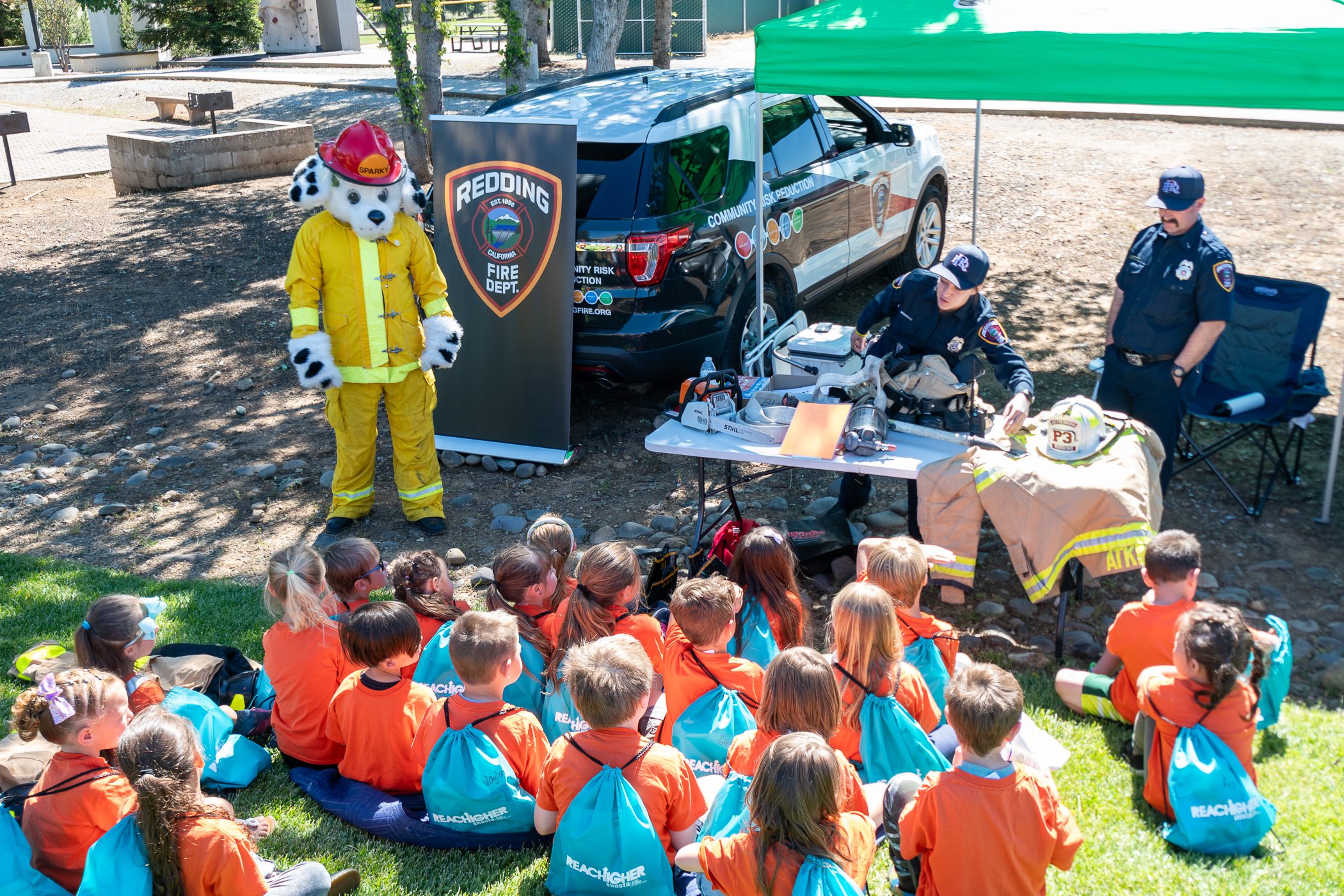The Value of Interactive Tasks in Grade Institution Education And Learning
Interactive activities play a crucial duty in grade institution education and learning. They engage trainees and improve discovering results. Through group projects and hands-on experiments, students experience the material in a useful method. This technique deals with varied understanding designs and promotes important abilities. Nonetheless, the benefits extend beyond academics. Checking out the deeper effect of these tasks exposes their importance fit young learners' futures. What transformations take place when pupils proactively take part?
Enhancing Engagement With Interactive Knowing
Typical mentor methods have their values, interactive understanding substantially boosts student engagement in quality school education. This approach urges active participation, permitting pupils to submerse themselves in the knowing process. By making use of group activities, hands-on experiments, and technology-driven resources, instructors produce an atmosphere where trainees really feel a lot more connected to the material.
Interactive understanding promotes collaboration among peers, fostering interaction skills and teamwork. It additionally satisfies varied learning styles, making certain that aesthetic, auditory, and kinesthetic students can all flourish. Additionally, students are more probable to preserve information when they actively get involved, rather than passively receiving understanding.
This dynamic technique not just makes finding out delightful however also imparts a feeling of ownership in pupils concerning their academic journey. As they involve with the content, their curiosity and inspiration to find out increase, laying a strong foundation for future scholastic success.
Creating Vital Assuming Skills
Interactive knowing not only improves interaction however likewise works as a catalyst for developing vital assuming skills in elementary school pupils. Through activities such as problem-based understanding, debates, and hands-on experiments, trainees are urged to analyze information, assess various perspectives, and formulate reasoned conclusions. These interactive experiences call for students to question assumptions, leading them to assume even more deeply concerning different topics.

In addition, interactive tasks frequently existing real-world situations that challenge trainees to apply their expertise artistically. By maneuvering through these challenges, they learn to determine relevant info and make notified decisions. This procedure fosters not just individual crucial reasoning yet additionally urges trainees to express their believed processes, boosting their ability to communicate effectively. Therefore, interactive knowing atmospheres cultivate a generation of essential thinkers that are much better prepared to tackle intricate troubles in their future academic and expert ventures.
Fostering Collaboration Amongst Peers
Fostering partnership among peers is essential in elementary school education, as it improves teamwork and interaction abilities. Involving in group tasks helps pupils develop count on and respect for one an additional, preparing for reliable collaboration. Problem-solving with each other enables trainees to discover from each other and establish a collective approach to difficulties.
Teamwork and Interaction Skills
Reliable synergy and interaction skills are necessary elements of an effective quality college education. Involving in interactive activities motivates pupils to collaborate, share ideas, and resolve troubles with each other. Such experiences advertise the development of vital communication capabilities, enabling youngsters to share their ideas clearly and listen actively to others. Through team effort, students learn to appreciate diverse viewpoints, fostering a sense of neighborhood and shared obligation. Structured group tasks, whether in academics or innovative jobs, enhance peer interactions, showing kids exactly how to bargain functions and resolve conflicts. These abilities not just add to a favorable class atmosphere yet likewise prepare pupils for future collective ventures in higher education and learning and the work environment. On the whole, synergy and interaction are fundamental to holistic development in grade college.
Building Count On and Respect
Building count on and respect amongst peers acts as a cornerstone for successful cooperation in elementary school environments. When trainees feel valued and respected by their classmates, they are more probable to engage proactively in group tasks. Interactive activities, such as team tasks and cooperative games, give chances for students to gain from each other, promoting a sense of area. This atmosphere encourages open interaction, allowing pupils to share their concepts and opinions without anxiety of judgment. As count on constructs, pupils come to be extra ready to share duties and sustain each other's understanding. Inevitably, cultivating an ambience of trust and respect improves not just academic results yet additionally social advancement, furnishing students with important interpersonal abilities for their future ventures.
Problem-Solving With each other
Collective analytical involves students in vital reasoning and teamwork, important abilities for their personal and academic growth. When pupils interact to tackle obstacles, they discover to communicate successfully, regard varied point of views, and leverage each various other's toughness. This procedure enhances their capability to assess troubles from various angles and develop innovative solutions. Group activities, such as science experiments or mathematics challenges, promote active involvement and cultivate a sense of area. As students work together, they likewise develop social abilities, learning to work out and jeopardize, which are important for future interactions. Ultimately, analytical together cultivates a supportive learning atmosphere, empowering students to take ownership of their education and learning while preparing them for collective undertakings beyond the class.
Encouraging Creative Thinking and Innovation
Motivating creativity and development in quality college education and learning can be considerably enhanced with hands-on discovering experiences. These tasks enable students to engage straight with principles and materials, promoting imaginative reasoning. In addition, collective team tasks can boost varied ideas and solutions, better supporting an innovative atmosphere.
Hands-On Understanding Knowledge
A wide variety of hands-on learning experiences considerably enhances imagination and innovation in quality college education. Involving pupils in useful tasks enables them to use theoretical understanding in real-world contexts, cultivating deeper understanding. By controling tools and products, children create essential analytical skills and learn to think outside the box. These experiences motivate interest and encourage trainees to discover their interests better. Furthermore, hands-on activities can connect numerous subjects, linking science, art, and math in purposeful ways. This interdisciplinary strategy encourages trainees to see connections and assume creatively. Eventually, hands-on understanding experiences support a generation of innovators, furnishing them with the abilities and self-confidence needed to tackle future challenges and contribute to culture in one-of-a-kind ways.
Collaborative Group Projects
Hands-on understanding experiences naturally cause the incorporation of collaborative group tasks, which play an essential function in promoting creative thinking and development in elementary school education. These projects encourage trainees to function with each other, sharing viewpoints and concepts, which boosts analytic abilities and vital reasoning. Via cooperation, students discover to connect effectively and respect varied viewpoints, important abilities for their future. In addition, team projects offer opportunities for pupils to trying out various functions, boosting their flexibility and self-confidence. Participating in this participating atmosphere permits them to discover their creative thinking, pressing the limits of typical learning. Inevitably, collective team jobs not only enrich the academic experience yet additionally prepare trainees for real-world obstacles that call for team effort and cutting-edge thinking.
Building Self-confidence and Independence
As students involve in interactive activities, they commonly uncover chances to construct confidence and self-reliance. These tasks, whether they entail hands-on jobs, role-playing, or analytical jobs, motivate pupils to take campaign and reveal their ideas honestly. By taking part in such experiences, pupils discover to trust their capacities and choose without counting solely on support from instructors or peers.
Interactive activities foster a feeling of ownership over discovering. When students take on obstacles collaboratively or separately, they create vital thinking skills and resilience. This process not only boosts navigate to this site their understanding of the subject yet also empowers them to take threats in their discovering journey.
As they navigate different interactive circumstances, pupils progressively lost their Discover More Here self-doubt, paving the way for boosted self-esteem - Kindergarten. Eventually, these tasks play a crucial function in nurturing independent and positive learners, geared up to encounter future academic and personal challenges
Creating a Positive Classroom Setting
While promoting a positive classroom setting is important for effective knowing, it needs willful initiative from teachers to create a room where pupils really feel safe, revered, and engaged. A positive atmosphere urges partnership, enabling students to share themselves without concern of judgment.
Educators can accomplish this by establishing clear expectations, advertising shared regard, and acknowledging individual contributions. Incorporating interactive tasks additionally improves involvement, making discovering more delightful and dynamic.
Furthermore, a nurturing setting supports social-emotional development, as students find out to browse connections and deal with disputes. Educators play a vital role in modeling favorable actions and reinforcing a society of generosity and inclusivity.
Frequently Asked Concerns

How Can Moms And Dads Support Interactive Knowing in the house?
Parents can sustain interactive learning in your home by supplying engaging products, urging hands-on projects, integrating academic video games, promoting discussions, and creating a nurturing setting that promotes inquisitiveness and expedition in their children's finding out experiences. (Kindergarten)
What Sorts Of Interactive Tasks Are A Lot Of Effective?
Hands-on jobs, collaborative games, role-playing scenarios, and academic modern technology applications are among one of the most reliable interactive activities. These involve students, improve crucial assuming abilities, and promote synergy, eventually cultivating a deeper understanding of various topics.
How Do Interactive Activities Accommodate Different Discovering Styles?
Interactive tasks involve visual, auditory, and kinesthetic students by integrating varied approaches. These activities help with recognizing through hands-on experiences, collective conversations, and aesthetic help, enabling students to take in details according to their favored learning design.
What Are the Costs Connected With Applying Interactive Tasks?

Implementing interactive activities sustains prices such as materials, training for teachers, modern technology upgrades, and prospective center modifications. Spending plan constraints can likewise impact the frequency and range of tasks supplied to pupils in educational setups.
Exactly How Can Teachers Examine the Effect of Interactive Understanding?
Educators can analyze the influence of interactive learning through observations, trainee responses, efficiency metrics, check this and relative evaluation of examination scores prior to and after execution, ensuring a complete understanding of involvement and knowledge retention enhancements.
With activities such as problem-based knowing, discussions, and hands-on experiments, pupils are urged to assess details, evaluate different viewpoints, and develop reasoned verdicts. Interactive activities frequently existing real-world circumstances that test pupils to use their expertise artistically. Engaging in interactive activities urges students to collaborate, share ideas, and address issues with each other. Interactive activities, such as group tasks and cooperative games, provide opportunities for students to learn from one another, fostering a feeling of neighborhood. As trainees involve in interactive activities, they often uncover possibilities to build confidence and self-reliance.